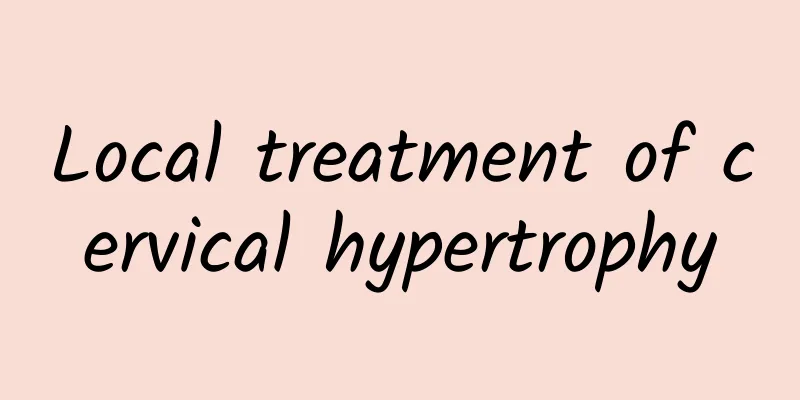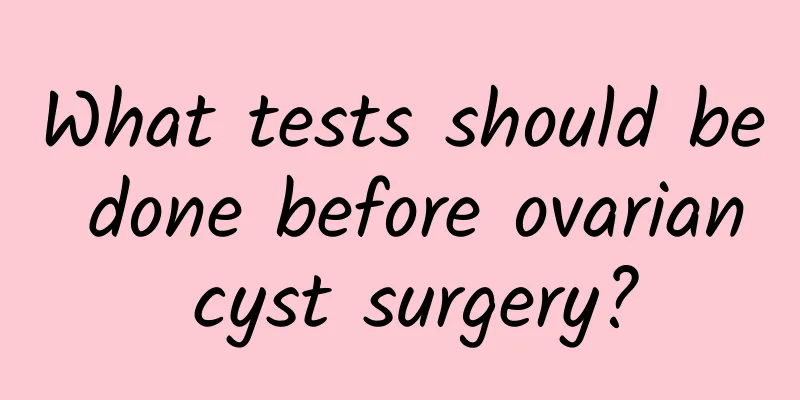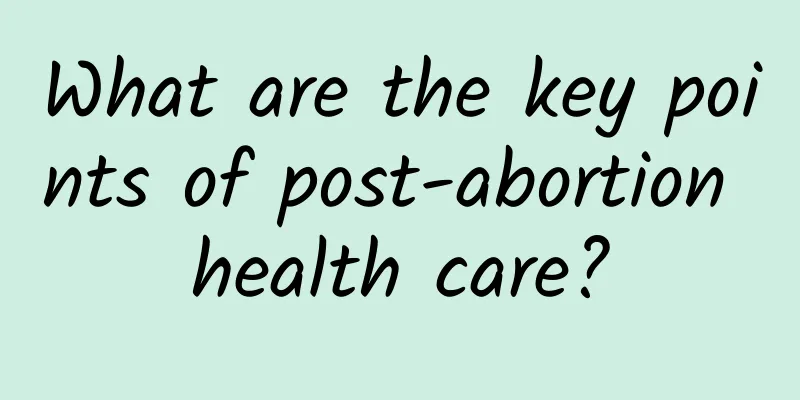Can I get pregnant with uterine fibroids? Is it dangerous?

|
Women with uterine fibroids can get pregnant in some cases, but there are certain risks, which depend on the location, size, number and development of the fibroids. Complications such as miscarriage, premature birth or placental abnormalities may occur during pregnancy, so close attention and management are required. The following is a detailed analysis of the reasons and suggestions. 1The impact of uterine fibroids on pregnancy Uterine fibroids can be divided into submucosal fibroids, subserosal fibroids and intramural fibroids according to their location. Submucosal fibroids have the greatest impact on pregnancy, changing the internal environment of the uterus, making it difficult for the fertilized egg to implant normally or increasing the chance of miscarriage. Intramural and subserosal fibroids depend more on the specific size and location - excessively large fibroids may compress the uterine cavity and affect fetal development. Fibroids may also cause abnormal uterine blood supply during pregnancy, leading to fetal intrauterine growth restriction. 2Possible dangers during pregnancy For patients who still have uterine fibroids after pregnancy, the following complications need to be vigilant: Risk of miscarriage: Fibroids cause endometrial abnormalities, making miscarriage more likely to occur in early pregnancy. Uterine rupture: Especially in patients with large submucosal fibroids, the uterine wall is too thin and prone to rupture. Premature birth: Poorly located fibroids may cause placental abruption, abnormal uterine contractions, etc., increasing the probability of premature birth. Abnormal fetal position or cesarean section: Compression by fibroids may cause malposition of the fetus or hinder normal delivery, increasing the chance of cesarean section. 3 Treatment recommendations and pregnancy management For patients who wish to become pregnant but have been diagnosed with uterine fibroids, an evaluation of the fibroids is generally required first. The following measures may be considered: Drug treatment: such as the gonadotropin-releasing hormone agonist GnRH-a, can shrink fibroids in the short term and create conditions for pregnancy, but it must be used under the guidance of a professional physician to avoid long-term side effects. Surgical treatment: Hysteroscopic resection is recommended for submucosal fibroids; laparoscopy or laparotomy can be used for intramural or larger subserosal fibroids, which helps reduce the risks of pregnancy. Pregnancy monitoring: Regular prenatal checkups are required during pregnancy to closely monitor fetal development and changes in fibroids. If any abnormalities are found, seek medical attention promptly. 4Lifestyle and diet adjustment Maintaining a healthy weight and a balanced diet are beneficial to uterine health. It is recommended to consume more high-fiber vegetables, fruits and low-fat foods; moderate supplementation of vitamin D and antioxidants may help inhibit the proliferation of fibroids. At the same time, avoid triggers of high estrogen levels, such as excessive intake of hormone-containing foods or abuse of health products. Whether patients with uterine fibroids can successfully become pregnant depends on the individual. A personalized diagnosis and treatment plan should be adopted according to the specific situation of the fibroids and close follow-up should be carried out. If you are planning to get pregnant or are already pregnant and have uterine fibroids, you should manage it scientifically under the guidance of a professional doctor to ensure the safety of mother and baby. |
>>: Irregular menstruation and still can't get pregnant
Recommend
What causes cervical erosion and what are the hazards
Cervical erosion is a common gynecological phenom...
Estrogen for menopausal treatment
Studies have shown that a woman will release abou...
To have elastic and supple skin, you need more than just replenishing moisture! Nutritionist Song Peirong: 4 nutrients to get good skin
Many people want to have enviable elastic and smo...
Which department should I go to for abortion? What should I pay attention to during abortion?
Best time for artificial abortion Early artificia...
If women do not pay attention to menstrual hygiene, it may cause adnexitis
If women do not pay attention to menstrual hygien...
What is the main cause of Bartholinitis?
The private parts are the most private parts of w...
How to use topical medications for chronic cervicitis in women? Medication guide for patients with chronic cervicitis
Chronic cervicitis can be treated with topical me...
Good contraception is the key to reducing the number of abortions
Women have more than 20 years in their lives to c...
What is the cause of pelvic inflammatory disease?
Pelvic inflammatory disease is a common gynecolog...
Congenital absence of vagina hospital directory
Where is the best hospital for the treatment of c...
Note: Be careful of irregular menstruation when the following symptoms appear
Irregular menstruation is the most common gynecol...
How to care for patients with uterine effusion
Uterine effusion is a relatively serious gynecolo...
What are the common hazards of pelvic peritonitis
Pelvic peritonitis is relatively common in life a...
How is vaginitis diagnosed?
As we all know, sometimes we are sick but don’t k...
Drinking ginger and honey water reduces appetite? Sweating ≠ weight loss
Recently, a weight loss recipe has been circulati...









